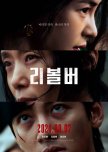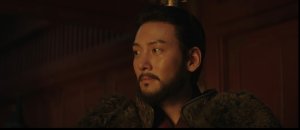
This review may contain spoilers
where the story and inner voice of the characters are more important than genre stereotypes.
Stereotypes of films like “The Count of Monte Cristo” have accustomed us to the standard plot lines of such stories: a strong hero/heroine, betrayal, years in prison that transform and temper their character, liberation, a plan for revenge, a cunning opponent whom the hero/heroine defeats due to their extreme coolness. In the South Korean “Revolver”, everything will be different: depending on your expectations, this will be either a cool feature or an annoying misunderstanding. The woman did not become stronger in prison - she is broken both morally and physically: as a former police officer, she was constantly beaten. The scene of liberation paints an accurate portrait of her: no family, no friends, no place to live, only scars on her body. She challenges the powerful villains who deceived the police, she decides to do so for a purely pragmatic reason - she has nothing to live on. The villains turn out to be not so influential and these are only bureaucrats whose “right hand does not know what the left hand is doing.” Moreover, they did not seem to be planning to deceive her - just, as happens in life, something went wrong. For almost two hours you will have to follow the chaotic actions of the heroine and her either friends or enemies. The outcome of such a story is unpredictable - having broken the initial axioms, we can end up anywhere in the finale. For some reason, this approach reminded me of Hayao Miyazaki’s stories, where powerful villains often turn out to be weak and worthy of sympathy. The film also has a detective component. This authorial and plot confusion seemed original and exciting. So I would definitely recommend “Revolver” to fans of non-standard action films, where the story and inner voice of the characters are more important than genre stereotypes.Was this review helpful to you?













